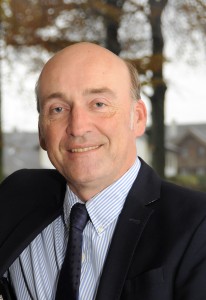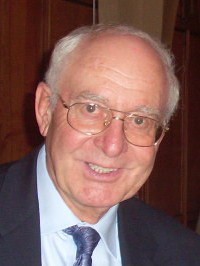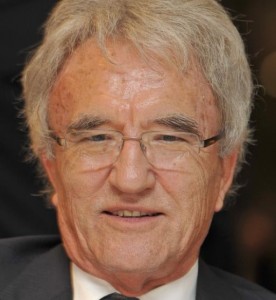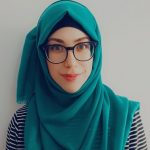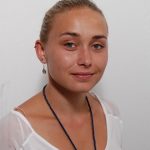about
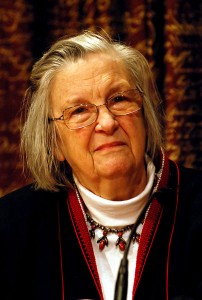 It was in 1999, when Elinor Ostrom (1933-2012) published a study on the impact of Social Capital on the water prices in Nepal. The lower the Social Capital, the higher were the prices. Why that?
It was in 1999, when Elinor Ostrom (1933-2012) published a study on the impact of Social Capital on the water prices in Nepal. The lower the Social Capital, the higher were the prices. Why that?
Key assets of bridging Social Capital such as trust, solidarity and helpfulness reduce the transaction costs. At the time therefore the World Bank was interested in the subject for a while. But the major problem was not to identifying and defining Social Capital but to measuring it. The SOCAT (Social Capital Assessment Tool) of the World Bank had 27 pages and hundreds of items – too much to assess Social Capital in around 180 countries and hundreds of languages.
2007 Alexander Dill published his first working paper on measuring non-material goods in the Library of the Commons of Ostrom at the Indiana University.
2009, short after the start of the financial crisis, Elinor Ostrom became Nobel laureate for her research on the Commons. In the same year the Basel Institute of Commons and Economics has been founded by her advice and with a first order of the Kanton of Basel to assess the social goods of Basel.
Due to her disease Ostrom couldn’t come to the public discussion in Basel in early 2010.
Director
Born in 1959, sociologist (Ph.D.) Alexander Dill worked in the Software Industry for ten years.
He discovered the social significance of freeware and began to research on free goods.
In 2006 he achieved the E-Business and E-Government Award of the Country of Salzburg, Austria.
In July 2009 he founded the Basel Institute of Commons and Economics in Basel. Since the founding of the company, he serves as a director.
His major books on Social Capital ‚Gemeinsam sind wir reich‘ (2012) and ‚Die Welt neu bewerten‘ (2017) reached a broad audience and were featured in leading German media such as Süddeutsche Zeitung, Deutschlandfunk, Zeit and Tagesspiegel.
Since 2016, Dill leads the UN SDG Partnerships project, the World Social Capital Monitor.
Since 2017, Dill contributes to the UN Inter Agency Task Force on Financing for Development (UN IATF on FfD).
His publications in the UN are available here: http://commons.ch/un-consultations/
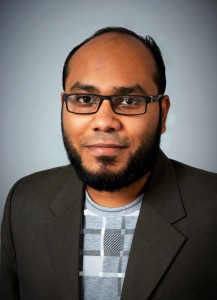 Director Information Technology
Director Information Technology
Shah Saquib is of Bangladesh origin and studied information technology at the Technical University of Munich, Germany. He is specialized in developing and administrating the online and mobile tools to conduct the Global Social Capital Assessment in today 50 language versions on https://trustyourplace.com.
.
. Advisory Board
Dr. Roland Bardy is the owner of Bardy Consult in Mannheim, Germany, where he mainly engages in management education. He received an M.B.A. in Vienna in 1969, and a Ph.D. from Heidelberg University, Germany, in 1974. From 1970 to 1999 he worked in Finance and Administration of BASF SE, the German multinational chemicals manufacturer. Then he took teaching as an Adjunct Professor at Emory University, Atlanta, and has held several other teaching assignments over the years.
He published several books on Management, Accounting, and Human Capital such as 2020 „Rethinking Leadership. A Human-centered Approach to Management Ethics.“ at Routledge Editors: https://www.amazon.de/Rethinking-Leadership-Centered-Approach-Management/dp/0367734745
His new book „Public Goods and Commons“ appears in December 2023 at De Gruyter:
https://www.degruyter.com/document/isbn/9783111132525/html
Professor h.c. Dr. Horst Teltschik studied Political Science. He served as an international political advisor for the German chancellor Dr. Helmut Kohl. Among his positions, he was a director of the Bertelsmann Foundation and
Executive Board of the BMW AG. The experienced advisor is member of the board of trustees of the German
Konrad Adenauer Foundation and of the commisson for the reunification of both Koreas.
His Book „Russisches Roulette. Vom Kalten Krieg um Kalten Frieden“ appears in a second edition at C.H. Beck Editors in 2024: https://www.beck-shop.de/teltschik-russisches-roulette/product/26938016
In 2019, Dr. Teltschik gave an Interview with the German SPIEGEL in which he called NATO’s eastward enlargement „A damned dangerous game!“. See a translation of the German Interview here: http://commons.ch/2019/03/this-is-a-damned-dangerous-game-horst-teltschik-on-natos-threat-to-russia/
Who else is working with us? …these friendly people:
Iman Elene Ramahi
Being a German citizen, Iman Elene Ramahi has Arab roots. She is a Bachelor of Sciences in Business Education.
Among her professional experience are the work for the Consulate General of the Arab Emirates in Munich and
multicultural adult education. In the Basel Institute, she is preparing the Arab Social Capital Monitor 2022-2023, a joint project with the United Nations Economic and Social Commission for Western Asia (UNESCWA).
Jelena-Natascha Apelt
Jelena Apelt has a Bachelor degree in Sociology from the University of Zürich and a Master degree in European Studies from the Global Studies Institute of the University of Geneva. She has joined our team as an adviser for Africa to help conduct the World Social Capital Monitor 2020.
Sharlin Mahmood
Sharlin Mahmood holds a Bachelor in Medicine and Surgery from the Ibrahim Medical College in Dhaka, Bangladesh. She is a Master of Sience (MSc) in Public Health at the Hochschule für Angewandte Wissenschaften in Hamburg, Germany. She joined the team as an adviser for Asia to conduct the World Social Capital Monitor 2020.
(past trainee)
admin am November 14th 2009
Kommentar schreiben
du mußt angemeldet sein, um kommentieren zu können.
